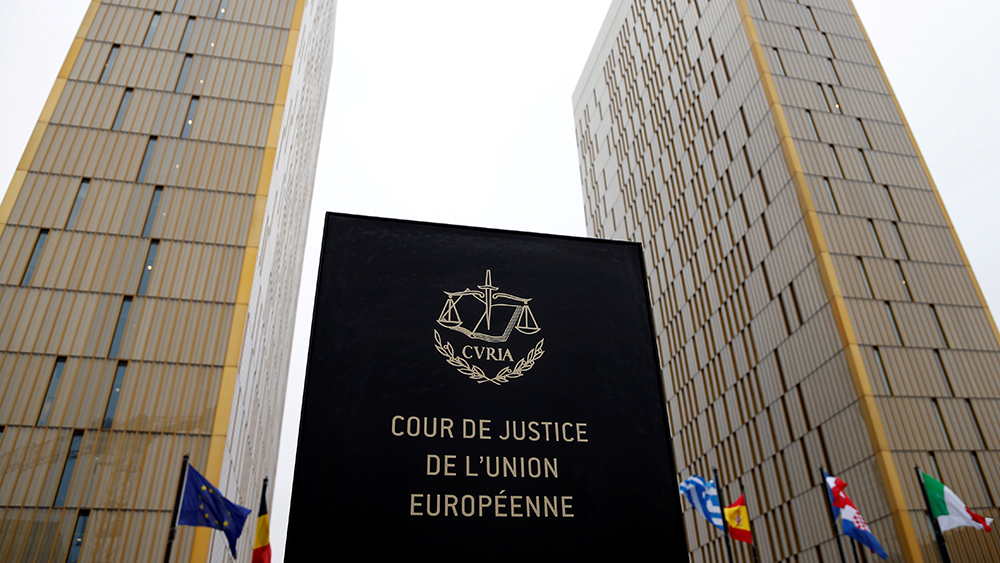Eastern European countries – particularly Hungary and Poland – see the EU very differently from their western neighbors. In their decision on refugees, European judges left no doubt about which side is in the wrong.
How to deal with refugees is by far the most divisive issue the European Union is facing. Over the past two years, it has been fodder for populist parties playing on fears of competition, cultural alienation, and terrorism, and has dramatically deepened the divide between eastern and western EU member states.
A recent ruling by the European Court of Justice is heightening those tensions. On September 6, the judges in Luxembourg decided that Hungary and Slovakia were in fact bound by a decision EU interior ministers took two years ago to relocate refugees among the member states. The court ruling was a defeat for Poland’s right-wing government, which had supported a movement for annulment. Both Hungary and Poland have already come under pressure from the EU for laws restricting the independence of the judiciary and the freedom of the press.
Reactions to the ruling were mixed. Slovakia grudgingly accepted the decision, while Hungary initially rebelled, with Foreign Minister Peter Szijjarto calling the decision unacceptable, outrageous, and irresponsible. “Politics have raped European law,” he added.
It took the Budapest government a full three days to publicly acknowledge the EU’s jurisdiction. “Hungary is an EU member, the treaties must be respected and the rulings of the European Court of Justice must be observed,” Prime Minister Viktor Orbán finally said in a radio interview.
A Big Deal
In terms of numbers, the court’s decision is irrelevant. Of a total of 120,000 refugees, Hungary was supposed to take in 1,294, Slovakia 902. EU ministers agreed in 2015 on a time frame of two years for the relocation, meaning it is entirely unclear whether Hungary and Slovakia will still need to take in refugees after the end of this month.
Further, if the European Commission were to push forward with infringement procedures against Hungary and Slovakia, other EU countries would find themselves on the spot as well. Only one country – Malta – has fully fulfilled its obligations to relocate refugees.
Finally, there is the situation on the ground. Living conditions for refugees in Hungary are so abysmal that the German authorities recently decided not to send back any asylum seekers. In fact, Prime Minister Victor Orbán has done everything he can to make his country as unwelcoming as possible. At the same time, he cynically argues that it is pointless to force his country to take in refugees as they would in any case leave for Germany at the first opportunity.
Why then is the European court’s decision such a big deal? Beyond any concrete repercussions on housing refugees, it has important political implications in two areas: first of all, the judges confirmed the notion that in a refugee crisis, solidarity is owed toward both the people fleeing war and the countries taking them in. “Solidarity is not a one-way street,” as the European Commission for Migration, Dimitris Avramopoulos, said.
Secondly, the court also ruled on the institutional basis of the 2015 decision. It confirmed that the EU Commission had the right to propose a binding relocation mechanism, and that EU ministers could decide by majority vote – against a minority consisting of several eastern European countries – to accept that proposal.
Governments in Hungary and Poland, but also in Slovakia and the Czech Republic, very much believe in national sovereignty; they would prefer that each country decide for itself how to deal with refugees and immigration, and only feel obligated to abide by unanimous EU-level decisions. Institutionally, they favor intergovernmentalism over the EU’s méthode communautaire, which gives the European Commission a central role in decision-making.
A Shifted Balance
Of course, western European governments don’t like to be outvoted either, and more than one of them sees the European Commission as power hungry. But with the United Kingdom’s decision to leave the EU, the balance of power within the bloc has shifted.
The UK, a major western EU country that was always very much attached to national sovereignty, is out of the picture. At the same time, other long-time member states like France and Germany are pushing for more integration to keep the EU from falling apart. Unanimity, German Chancellor Angela Merkel said in an interview, was important on foreign policy issues. She added that on other matters, it was equally important to accept that “sometimes we will find ourselves outvoted, though of course no country likes that.”
It is widely expected that the new Berlin government, following elections on September 24, will work with France on significant EU reforms to strengthen the eurozone and build up European defense. Countries like Poland and Hungary, which neither want to join the euro nor wish to see their influence in the EU dwindle even further, will likely oppose many of these measures.
Yet they may find themselves outmaneuvered if core countries decide to push forward without them. Under EU law, it is possible to have “reinforced cooperation” on particular issues, effectively allowing coalitions of the willing. Even talking about this model of integration puts enormous pressure on the skeptics.
Grudging acceptance does not, however, make for a happy family, and relations between East and West could end up even more strained. EU Commission President Jean-Claude Juncker now frequently speaks about how much he worries about this rift. “It’s not a catastrophe, but it’s a reality that we have seen happen over the past two years: the more we get into issues of substance, the more we see East and West differ in their sensibilities.”







